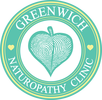|
Do you suffer from headaches or migraines? Maybe you have an intolerance to salicylate phenolics. An intolerance to salicylate phenolic is indicated in our clients who typically suffer from a wide range of issues including:
What is a salicylate? Salicylates are chemicals produced naturally by plants as a preservative and as a natural defence against harmful pests and bacteria. They can be found in natural form in certain fruits, vegetables, herbs and plants. Salicylates are also widespread in manufactured products, such as medicines (salicylates are a key ingredient in aspirin), solvents, household cleaning goods and health and beauty products. What are the signs and symptoms? Salicylates are thought to over stimulate the central nervous system of people whom they affect. Bringing on emotional extremes of feelings of elation followed by feelings of depression. Symptoms are therefore varied vary but can include dark rings around the eyes, swelling of the eyes, hands and feet, a rash, hives, nasal congestion, breathing difficulties and asthma-like symptoms. Stomach pain, diarrhea, constipation or nausea are also common symptoms. Behavioural symptoms, more commonly seen in children, can include hyperactivity, aggression and head banging. In adults we see symptoms similar to chronic fatigue. It is rare for someone to suffer anaphylactic shock however this can occur in severe cases. Are there any tests available? While there are currently no blood tests available, at GNC we use a US-imported screening method to test for sensitivity. Can anything help me? The most effective way to begin to solve the problem of a reaction to salicylate phenolics is to eliminate man made salicylate compounds from your diet and lifestyle. So this includes most chemical laden grooming, hygiene, and domestic cleaning products and all food additives including:
Salicylates in Food Very high Fruit & vegetables: dried apricots, dates, currants, raisins, prunes. Herbs & spices: aniseed, cayenne, celery powder, cinnamon, cumin, curry powder, dill, garam masala, mace, mustard, oregano, paprika, rosemary, sage, tarragon, turmeric, thyme, Worcester sauce. Beverages: cordials, fruit flavoured drinks, fruit and vegetable juices. High Fruit: apples, berries, citrus fruits, figs, grapes, guava, kiwi, pineapple. Vegetables: broccoli, chicory, chilli peppers, gherkin, peppers, radish, water chestnut. Herbs & spices: allspice, basil, bay-leaf, chilli, cloves, ginger, mint, nutmeg, black/white pepper, pickles. Nuts:almonds, macadamia, peanuts with skins, pistachio, pine nuts. Beveridges: coffee, tea, Benedictine, Drambuie, port, rum, Tia Maria. Moderate Fruit: apricots, cherries, dates, grapefruit, lychee, all melons, peach, plum. Vegetables: asparagus, aubergine, avocado, cucumber, tinned/puree tomatoes. Herbs & spices: cornflour, yeast extracts. Nuts: Brazil nuts, desiccated coconut, peanut butter, walnuts. Beverages:beer, cider, coca cola, rosehip tea, sherry, red/white wine This website does not provide medical advice. The information including, but not limited to text, graphic and images, and other material contained on this website are for informational and educational purposes only. No information on this site is intended to be a substitute for professional medical advice, diagnosis or treatment. Always seek the advice of your physician or other qualified health care provider with any questions you may have regarding a medical condition or treatment and before undertaking a new health care regime and never disregard professional medical advice or delay seeking it because of something you have read on this website.
0 Comments
Leave a Reply. |
AuthorNaturopath Nutritional and Herbal Medicine Therapists Providing support & programmes designed to restore health & optimise wellbeing. Archives
December 2023
Categories |


 RSS Feed
RSS Feed
